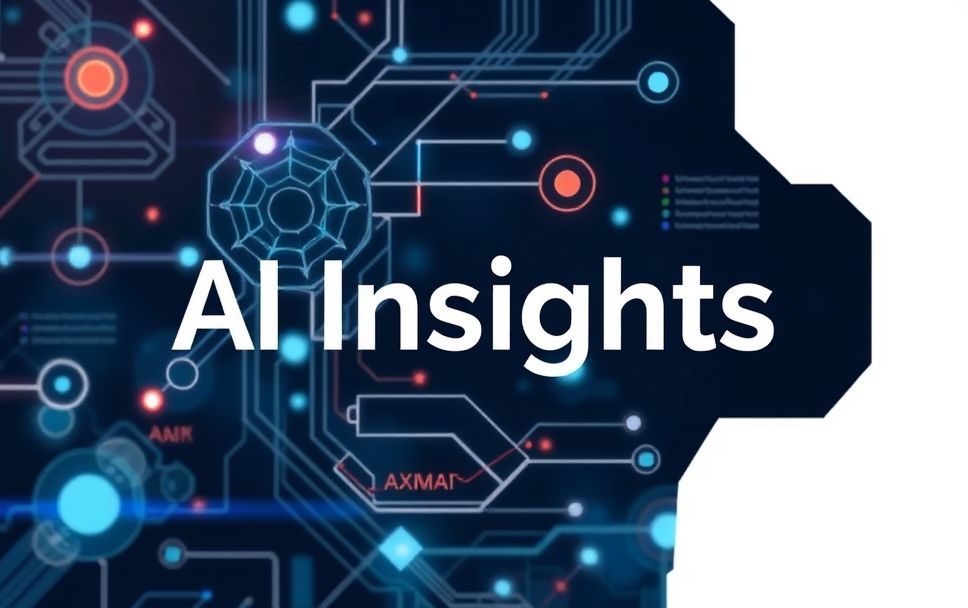AI Insights: A Comprehensive Glossary
AI Insights refers to the actionable knowledge and understanding derived from analyzing data using artificial intelligence (AI) methods. It encompasses the extraction of meaningful patterns, trends, and predictions from vast datasets, empowering organizations to make informed decisions.
The Importance of AI Insights in Today’s Digital Landscape
In an era dominated by data, AI Insights play a crucial role in transforming raw information into strategic advantages. Businesses leverage these insights to enhance customer experiences, optimize operations, and innovate products and services. With the exponential growth of data, the ability to derive actionable insights is not just beneficial; it is essential for survival in competitive markets.
Fundamental Aspects of AI Insights
AI Insights involve several key components that contribute to their effectiveness:
- Data Collection: Gathering relevant data from various sources, including user interactions, sensor outputs, and historical records.
- Data Processing: Cleaning and organizing data to ensure its quality and usability for analysis.
- Analysis Techniques: Utilizing machine learning algorithms, statistical methods, and natural language processing to uncover patterns.
- Visualization: Presenting insights in a visually comprehensible manner, making it easier for stakeholders to understand and act upon the information.
- Real-Time Processing: Enabling organizations to receive insights instantly as data is generated, allowing for prompt decision-making.
Applications of AI Insights in Various Industries
AI Insights have practical applications across numerous sectors. Here are a few examples:
1. Healthcare
In healthcare, AI Insights can analyze patient data to predict disease outbreaks or identify patients at risk of certain conditions. For instance, predictive analytics can help in early detection of chronic diseases, leading to timely interventions.
2. Finance
Financial institutions utilize AI Insights to detect fraudulent transactions, assess credit risks, and personalize customer experiences. By analyzing transaction patterns, banks can identify suspicious activities in real-time.
3. Retail
Retailers leverage AI Insights to understand consumer behavior, optimize inventory, and enhance marketing strategies. For example, analyzing purchase history can help retailers recommend products that match customer preferences.
4. Manufacturing
In manufacturing, AI Insights are employed to predict equipment failures, streamline supply chains, and enhance production efficiency. Predictive maintenance powered by AI can significantly reduce downtime.
How to Utilize AI Insights in Your Daily Operations
Implementing AI Insights can be straightforward with the right approach. Here are practical steps to get started:
- Identify Objectives: Determine what insights you need for decision-making in your organization.
- Choose the Right Tools: Invest in AI tools and platforms that suit your data needs, such as data analytics software or machine learning frameworks.
- Gather Data: Start collecting data relevant to your objectives. Ensure quality and relevance in your data sources.
- Analyze and Interpret: Use AI algorithms to analyze the data and extract meaningful insights. Consider hiring or training staff with expertise in data analysis.
- Implement Insights: Translate insights into actionable strategies. Monitor results to refine your approach continually.
Related Concepts to AI Insights
Understanding AI Insights also involves recognizing related terms and concepts:
- Machine Learning: A subset of AI focused on building systems that learn from data and improve their performance over time.
- Data Mining: The process of discovering patterns in large datasets, often seen as a precursor to gaining AI Insights.
- Predictive Analytics: Techniques that use statistical algorithms and machine learning to identify the likelihood of future outcomes based on historical data.
- Big Data: Refers to extremely large data sets that may be analyzed computationally to reveal patterns, trends, and associations.
Conclusion: The Future of AI Insights
As AI technology evolves, the potential for AI Insights will only expand. Organizations that harness these insights effectively will gain significant advantages in efficiency, innovation, and customer satisfaction. Embracing AI Insights isn’t just about technology; it’s about a mindset shift towards data-driven decision-making. Reflect on how you can implement AI Insights in your operations today, and prepare to unlock new opportunities for growth.









